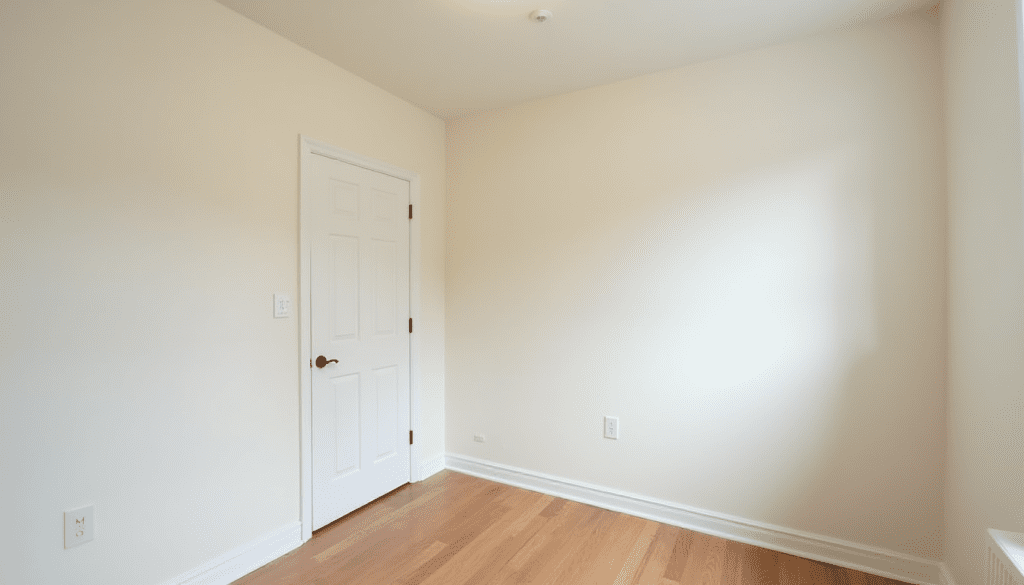In this article, we focus on how a landlord or tenant in East Orange, NJ should understand the “3-Day Notice to Pay or Quit” (or more broadly, a “3-Day Notice to Quit”) under New Jersey law. We’ll cover why it matters, how it works, what to do — and what rights each party has.
1. Introduction: What a 3-Day Notice Means for East Orange Tenants
For tenants renting in East Orange, the phrase “3-Day Notice to Pay or Quit” often triggers anxiety: it sounds like immediate eviction. But while the timeline is short, it isn’t always as abrupt as it feels — and understanding the context is key. This kind of notice is a formal communication that the landlord is demanding payment of overdue rent (in many cases) or asking the tenant to vacate the unit because of certain serious lease violations.
It is important to know that in New Jersey, different types of notices apply depending on the reason for termination of tenancy. For example, when the tenant is simply late or fails to pay rent, the landlord may proceed without a prior “3-Day Notice to Quit” in some cases — but when the reason is more serious (illegal activity, damage, disorderly conduct) a 3-Day Notice to Quit may be required. :contentReference[oaicite:1]{index=1}
For landlords in East Orange, a properly drafted and served notice is the first procedural step toward reclaiming possession of the property — but it is not the final step. Tenants likewise need to know their rights, timelines, and options to respond.
2. Legal Foundation: NJ Eviction Laws Explained
To understand how the 3-Day Notice works in East Orange, we must look at the relevant statutes in New Jersey. The primary law is the New Jersey Anti Eviction Act (N.J.S.A. 2A:18-61.1 et seq.). Under N.J.S.A. 2A:18-61.2(a), a landlord may give a “three days’ notice prior to the institution of the action for possession” when the ground for removal involves disorderly conduct, damage to premises, or illegal activity. :contentReference[oaicite:3]{index=3}
In non-payment of rent cases, the statute clarifies that the tenant has certain rights even after a judgment: for example, under N.J.S.A. 2A:42-10.16a, in a nonpayment eviction action, tenants are given three business days after the warrant for removal is posted to pay rent and costs and thereby have the case dismissed. :contentReference[oaicite:4]{index=4}
Another key bulletin from the New Jersey Department of Community Affairs clarifies that a “Notice to Quit” must be served at least three days prior to filing the eviction suit in certain cases. :contentReference[oaicite:6]{index=6}
Because East Orange falls under New Jersey’s statewide landlord-tenant laws, both landlords and tenants in that city must comply with these procedural safeguards before a court will allow forcible removal. :contentReference[oaicite:7]{index=7}
3. The Purpose of a 3-Day Notice to Pay or Quit
Why does a landlord serve a 3-Day Notice? It serves several purposes:
- It notifies the tenant of a serious lease violation (such as illegal activity, damage to premises, or disorderly conduct) and demands the tenant vacate within three days. :contentReference[oaicite:8]{index=8}
- It preserves the landlord’s right to file an eviction complaint in court — certain grounds require this short notice before court action. :contentReference[oaicite:9]{index=9}
- It provides the tenant a very limited opportunity (in some cases none) to remedy the issue or move out, depending on the violation type. :contentReference[oaicite:10]{index=10}
- It signals to the tenant: pay what’s owed (if rent), or vacate; or if it is a behavior violation, leave because the tenancy is terminating. This is especially important in East Orange where landlord-tenant disputes may escalate quickly.
From the tenant’s perspective, receiving this notice means immediate attention is required: address the underlying issue (rent owed, damage, behavior) or begin planning next steps. From the landlord’s perspective, it means you’re entering one of the more expedited eviction tracks — so attention to correct service and documentation is vital.
4. When Can a Landlord Serve This Notice in East Orange?
Here are typical scenarios when a landlord in East Orange may serve a “3-Day Notice to Pay or Quit” (or effectively a “3-Day Notice to Quit” depending on context) under New Jersey law:
- Serious lease violation or illegal activity. If the tenant engages in disorderly conduct, commits illegal drug use/manufacture/possession on premises, or damages the property willfully or through gross negligence — then the landlord may issue a 3-day notice. :contentReference[oaicite:11]{index=11}
- Non-payment of rent in some cases. While many nonpayment situations allow the landlord to file directly without a specific 3-day notice, the statute still provides tenants the right to cure within three business days after the warrant of removal is posted. :contentReference[oaicite:12]{index=12}
- Repeated rent lateness or other lease breaches. If the tenant has habitually failed to pay rent after warning, then a one-month notice is required rather than immediate 3-day notice. :contentReference[oaicite:13]{index=13}
Because our focus is East Orange — a city in Essex County, NJ — the landlord must follow county procedural rules in addition to state statutes. That means proper service methods (personal, certified mail, posting) and accurate documentation are essential.
In short: the 3-day notice is reserved for more serious or immediate terminations — not simply the first missed rent. If a landlord sticks to a 3-day notice improperly (when law requires longer), the tenant may have defenses in court.
5. Step-by-Step Breakdown of the Notice Process
Here’s how a landlord in East Orange should proceed — and how a tenant should respond — when a 3-Day Notice is in play:
- Landlord determines cause and gathers evidence. The landlord must identify the grounds (e.g., major damage, illegal activity, or serious violation) and gather documentation: photos, lease terms, logs of behavior, rent ledger. If the case is nonpayment, landlord documents rent due, lease terms, late notices.
- Prepare the 3-Day Notice document. The notice should clearly state the tenant’s name, address, the nature of the violation or rent owed, the date of the notice, and that the tenancy will terminate (or payment must be made) within three days. This aligns with New Jersey’s provision for “three-day notice prior to institution” in § 2A:18-61.2(a). :contentReference[oaicite:14]{index=14}
- Serve the notice properly. Service must comply with New Jersey service requirements: personal delivery to tenant or adult family member, certified mail or posting in conspicuous place if no one is present. :contentReference[oaicite:15]{index=15}
- Wait out the three-day period. The landlord must allow at least three days (in many cases three business days) from service before filing an eviction complaint (if the tenant fails to comply). The tenant may use this period to comply (either pay or vacate). If the reason is a serious violation, vacate is required.
- If tenant does not comply — file eviction complaint. The landlord must then file a Verified Complaint and Summons in the Special Civil Part of the Superior Court (Essex County). Support with proof of service and violation. :contentReference[oaicite:16]{index=16}
- Court hearing and possible judgment. After serving the complaint, a hearing will be scheduled (often 10-30 days out). If the judge finds for the landlord, a Judgment for Possession is entered. :contentReference[oaicite:17]{index=17}
- Tenant cure period or removal warrant. In nonpayment cases, the tenant has up to three business days after the warrant is posted to pay and avoid eviction. :contentReference[oaicite:18]{index=18}
- Eviction execution. If the tenant fails to vacate or pay, a Special Civil Part officer issues the warrant of removal and executes the eviction. Landlord cannot self-lockout tenant. :contentReference[oaicite:19]{index=19}
From the tenant’s side, upon receiving the notice they should:
- Review the notice to ensure it states the correct facts (tenant name, address, violation or rent owed, date served).
- Check if the reason qualifies for a 3-day notice (serious violation) or if landlord should have served a longer notice.
- If rent-related, evaluate whether payment (or partial) might stop eviction or open dialogue with landlord.
- If behavior-related (damage/illegal activity), consult an attorney or tenant rights group — you may have defenses.
- Prepare for court: gather your lease, payment records, communications, evidence of repairs or landlord non-compliance.
Being in East Orange means you may also want local resources (legal aid, tenant assistance programs) ready, since timelines are short.
By following these steps, landlords and tenants in East Orange can work within the law — either resolving the issue quickly or preparing for court in a compliant way. The three-day window is tight, so accuracy is critical.
In the next sections of this article, we’ll explore the specific required elements of the notice, how tenants should respond, common mistakes, rights in East Orange, and more.
Disclaimer: This article is for informational purposes only and does not constitute legal advice. Landlord-tenant law in New Jersey (including in East Orange) is subject to change and can vary with individual circumstances. Always consult a qualified attorney for advice tailored to your situation.
::contentReference[oaicite:20]{index=20}
6. Key Elements That Must Be Included in the Notice
A valid 3-Day Notice to Pay or Quit in East Orange must contain specific details under New Jersey landlord-tenant law. Missing or incorrect information can invalidate the entire notice and delay the eviction process. Here’s what every properly drafted notice should include:
- Tenant and property identification: Full legal name of the tenant(s) and the complete address of the rental unit, including apartment number if applicable.
- Date of issuance: The exact date the notice is written and served, establishing the start of the three-day countdown.
- Clear reason for the notice: State the cause (e.g., “non-payment of rent for the month of October 2025 in the amount of $1,200,” or “illegal activity observed on [date]”).
- Specific demand: The action required — pay the full rent owed within three days or vacate the property. For behavioral violations, it should simply direct the tenant to vacate within three days.
- Landlord or agent contact details: Include the name, address, and contact number of the landlord or property manager who can receive payment or communication.
- Method of payment or resolution instructions: Provide clear guidance on where and how to deliver payment (address, online portal, or certified mail options).
- Signature and delivery confirmation: The landlord’s signature and, ideally, a proof-of-service section noting how and when the notice was delivered.
Failure to include any of these details can give a tenant legal grounds to challenge the eviction in Essex County’s Special Civil Part court. Courts tend to favor procedural accuracy, especially where notice timing is short.
It’s best practice for landlords to retain a copy of the notice, proof of delivery (mail receipt, affidavit of service, or delivery log), and any documentation of the violation or unpaid rent. Tenants should likewise keep their own records to verify whether the notice complied with New Jersey’s legal standards.
7. How Tenants Should Respond Within Three Days
Receiving a 3-Day Notice to Pay or Quit in East Orange can be stressful, but a calm, informed response within the three-day period can make a major difference. Here’s what tenants should do step by step:
- Review the notice carefully. Check that your name, address, and rent amount are correct. If anything appears wrong, note it immediately.
- Confirm whether the notice applies to your situation. In New Jersey, not all cases legally qualify for a 3-day notice. For non-payment of rent, some landlords skip directly to court filings; for serious conduct, three days’ notice is required.
- Communicate with the landlord. Contact your landlord or property manager immediately. If you can pay the rent, ask for confirmation that payment within the period will stop further legal action.
- Document everything. Keep written proof (email, text, receipts) of payment attempts or landlord communications.
- Seek legal advice or tenant assistance. Local resources such as Essex-Newark Legal Services, or nonprofit housing organizations, can help tenants verify whether their rights were violated.
- Pay or move (if applicable). If the issue is unpaid rent and you can pay in full, do so immediately with proof of payment. If you cannot pay and eviction seems unavoidable, start preparing for relocation or negotiating a payment plan.
Tenants should not ignore the notice — doing so often accelerates eviction filings. By taking proactive action within the three-day period, you may avoid court fees, judgments, and the long-term credit impact of eviction filings.
8. Common Mistakes Landlords Make When Serving the Notice
Landlords often lose eviction cases not because the tenant was right, but because of small procedural missteps. To ensure compliance with New Jersey law, landlords in East Orange should avoid these common pitfalls:
- Using the wrong type of notice. Serving a 3-day notice for a routine late rent issue that should require a longer notice (such as one-month notice for habitual lateness) can invalidate the case.
- Incorrect service method. Notices must be served personally, via certified mail, or visibly posted on the property. Slipping it under the door without documentation is insufficient.
- Lack of proof of service. Without a signed affidavit, certified mail receipt, or timestamped photo of posting, the court may dismiss the complaint.
- Incomplete or vague notice language. Simply stating “you owe rent” isn’t enough — it must specify the exact amount and period owed.
- Charging illegal late fees or penalties. New Jersey’s rent control and consumer protection laws restrict excessive fees that can’t be proven under the lease.
- Retaliatory or discriminatory motives. Evictions cannot be used as retaliation for complaints to health inspectors, housing authorities, or for discriminatory reasons (race, religion, family status, etc.).
By ensuring that every notice is accurate, properly served, and legally justified, landlords improve their chances of successful enforcement in Essex County court.
9. What Happens if the Tenant Pays Within the 3 Days
If the tenant pays the full rent amount within the three-day window (including any verified late fees if allowed by the lease), the notice becomes void. The tenancy continues under the same terms, and the landlord cannot legally proceed with eviction based on that specific instance of nonpayment.
New Jersey law strongly favors the tenant’s right to cure nonpayment before an eviction judgment. Even after a court judgment for possession in a nonpayment case, tenants typically have three business days after the warrant for removal is posted to pay all amounts due and stop the eviction entirely (per N.J.S.A. 2A:42-10.16a). This is known as the “pay and stay” rule.
Landlords must issue a receipt for any payment accepted during the notice period and should not refuse payment merely to continue eviction proceedings, as that could be deemed bad faith.
10. What Happens if the Tenant Does Not Pay
If the tenant neither pays nor vacates within the three-day period, the landlord can file an eviction complaint in the Essex County Special Civil Part, typically using Form LT-1 (“Verified Complaint for Possession”).
After filing, the court sets a hearing date — usually 10 to 30 days from filing. Both landlord and tenant will receive summonses specifying the hearing date and location. If the court rules in favor of the landlord, a Judgment for Possession is issued, and the tenant may receive a Warrant for Removal posted on their door by a Special Civil Part Officer.
Tenants still retain limited rights even at this stage: paying the full rent (plus court costs) within three business days after the warrant is posted cancels the eviction under New Jersey law. However, if the eviction was based on illegal activity or property damage rather than nonpayment, the tenant generally cannot “cure” by paying.
At this point, it’s best for both parties to document all communications and prepare for court proceedings. Tenants who believe their notice was improperly served or that the landlord’s reasons were retaliatory can raise these defenses during the hearing.
Disclaimer: This content provides general legal information under New Jersey law and does not replace personalized legal advice. If you are a tenant or landlord in East Orange facing eviction, consult a licensed New Jersey attorney or legal aid organization for guidance specific to your situation.
11. How to Properly Deliver (Serve) the Notice in New Jersey
One of the most critical steps in the eviction process is ensuring the 3-Day Notice to Pay or Quit is properly served. If a landlord in East Orange fails to deliver the notice according to New Jersey’s strict procedural requirements, the court may dismiss the eviction case entirely, forcing the landlord to restart the process.
According to the New Jersey Department of Community Affairs and the Superior Court’s landlord-tenant procedural rules, a landlord may serve a 3-Day Notice in any of the following legally recognized ways:
- Personal delivery: Handing the notice directly to the tenant or an adult residing in the rental unit. This is the most effective and court-preferred method.
- Certified mail with return receipt requested: This method provides legal proof of mailing and receipt by the tenant.
- Posting on the property: If personal service is unsuccessful after reasonable attempts, the landlord may affix the notice in a visible location (such as the front door or main entryway) and follow up by regular mail.
It’s advisable for landlords to complete an Affidavit of Service immediately after delivering the notice. This affidavit, signed under oath, should include:
- The date and time of service
- The method used (personal, mail, or posting)
- The person who accepted delivery (if applicable)
- The landlord’s or agent’s signature
Keeping copies of all related documents—notice forms, receipts, affidavits, and any correspondence—is vital for court proceedings. Courts in Essex County often dismiss eviction filings if the landlord cannot show proper service documentation.
Tenants, on the other hand, should always verify that the notice was correctly served. If the notice arrives by uncertified mail or without a clear posting date, it may not satisfy New Jersey’s statutory requirements, potentially providing a valid defense in court.
12. Tenant Rights and Legal Protections in East Orange
Tenants in East Orange benefit from several layers of protection under New Jersey’s Anti-Eviction Act and state housing regulations. These protections exist to prevent unfair or retaliatory evictions and to ensure that tenants are treated lawfully throughout the process.
Key tenant rights include:
- Right to due process: No tenant can be removed from their rental unit without a court order issued by a judge. Lockouts or utility shutoffs conducted by landlords are illegal and punishable under N.J.S.A. 2A:39-1.
- Right to cure in nonpayment cases: Tenants can pay the full rent and costs within three business days after the warrant for removal is posted to stop the eviction entirely.
- Protection from retaliatory eviction: Landlords cannot evict tenants for filing health code complaints, joining tenant unions, or reporting unsafe living conditions.
- Anti-discrimination laws: Evictions cannot be based on race, color, religion, national origin, sex, disability, familial status, or source of lawful income (including housing vouchers).
- Local support resources: East Orange tenants may seek assistance from organizations such as Essex-Newark Legal Services, the New Jersey Tenants Organization, or municipal housing assistance offices.
These rights ensure tenants are not unlawfully displaced or taken advantage of by improper eviction practices. If a tenant suspects the landlord is violating these laws, they should immediately contact a housing attorney or legal aid office.
13. Sample Timeline: From Notice to Possible Eviction
Understanding the timeline helps both landlords and tenants plan appropriately. The following is a general example of what the process might look like in East Orange, NJ:
- Day 1: Landlord serves the 3-Day Notice to Pay or Quit (personal delivery, certified mail, or posting).
- Days 2–3: Tenant reviews notice and decides whether to pay, vacate, or contest. Tenant may contact landlord to discuss settlement or payment plan.
- Day 4: If tenant has not complied, the landlord may file an eviction complaint with the Essex County Special Civil Part.
- Days 14–30: The court schedules a hearing date, and both parties receive summonses. Tenant may file an answer or raise defenses.
- Hearing Day: The judge reviews evidence from both sides. If landlord prevails, a Judgment for Possession is issued.
- Post-judgment (3 business days): If it’s a nonpayment case, the tenant may pay all rent and court costs to stop the eviction before the warrant of removal is executed.
- After 3 business days: If payment isn’t made, the Special Civil Part Officer may proceed with the physical removal (eviction).
This process often takes two to six weeks from the initial notice, depending on court scheduling and tenant response. Landlords should not attempt to accelerate it by changing locks or removing belongings — only an authorized court officer may perform the eviction.
14. Preventing 3-Day Notices: Tips for Landlords and Tenants
Prevention is always better than confrontation. Many 3-Day Notices in East Orange can be avoided through clear communication and consistent management practices. Here are some proactive steps both parties can take:
For Landlords:
- Maintain open communication about rent due dates and lease obligations.
- Offer written reminders or payment plans before issuing formal notices.
- Document all interactions to prevent misunderstandings.
- Perform regular property inspections to address issues before they escalate.
- Consider hiring a property management company like RentShield Property Management for professional handling of tenant relations, maintenance, and legal compliance.
For Tenants:
- Communicate promptly if rent will be delayed — landlords may allow short extensions if discussed early.
- Keep written records of all payments and repairs requested.
- Report property issues in writing to avoid disputes later.
- Understand your lease and state eviction laws so you know your rights and duties.
When both sides handle disputes professionally and legally, they minimize financial loss, stress, and time spent in court.
15. Role of Property Management Companies in Handling Notices
Professional property management companies play a crucial role in avoiding legal mistakes and streamlining the eviction process. In East Orange, many landlords rely on licensed property managers to handle notices and tenant communication legally and professionally.
A property management company such as RentShield Property Management can help by:
- Drafting and serving legally compliant 3-Day Notices.
- Maintaining accurate payment and service records.
- Coordinating with attorneys and court officers during eviction filings.
- Advising landlords on lawful tenant screening, lease terms, and compliance with New Jersey housing laws.
- Providing preventive maintenance and communication tools to reduce tenant disputes.
With experienced management, landlords reduce risk, ensure compliance, and maintain professionalism — while tenants gain better clarity and support throughout their tenancy.
Disclaimer: This article is for educational purposes only and does not constitute legal advice. Always consult with a qualified attorney or property law specialist in New Jersey before taking action related to eviction or tenant rights.






